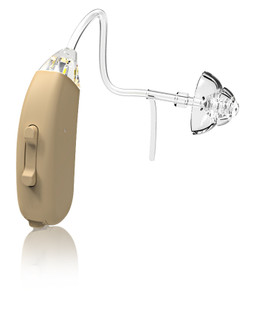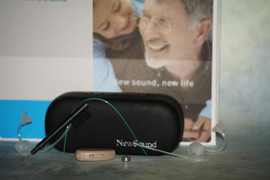Understanding Different Types of Hearing Aids
Posted by DR Paul on Jun 03, 2024
Which One is Right for You?
As we grow older, it's common for our hearing to decline—just like our eyesight and reflexes. But thanks to modern audiology, hearing aids can help us maintain our quality of life. Choosing the right hearing aid, however, can be overwhelming with so many options available.
This post aims to demystify the different types of hearing aids and help you find the one that best fits your needs.
The Importance of Hearing Aids for Seniors
Hearing loss affects millions of seniors worldwide. It can lead to social isolation, depression, and even cognitive decline. But the right hearing aid can make a significant difference, allowing you to stay connected with loved ones and engage in activities you enjoy.
Types of Hearing Aids
1. Behind-the-Ear (BTE) Hearing Aids
What are they?
BTE hearing aids consist of a small plastic case that sits behind the ear and is connected to an earmold inside the outer ear by a piece of clear tubing.
Benefits:
- Suitable for all types of hearing loss, from mild to profound
- More amplification than other styles
- Larger batteries provide longer battery life
- Easier to handle, especially for those with dexterity issues
Considerations:
- More visible than other types
- Can be affected by wind noise
2. Receiver-in-Canal (RIC) Hearing Aids
What are they?
RIC hearing aids are similar to BTE aids, but they have a thin electrical wire instead of tubing, with the receiver placed in the ear canal.
Benefits:
- Smaller and less visible than BTE aids
- Comfortable fit due to ergonomic design
- Better sound quality and natural hearing experience
Considerations:
- More delicate and may require more frequent repairs
- Not as powerful as BTE aids
3. In-the-Ear (ITE) Hearing Aids
What are they?
ITE hearing aids are custom-made to fit within the outer portion of the ear.
Benefits:
- Easier to insert and remove due to their larger size
- More powerful than smaller hearing aids
- Many features can be included due to the larger size
Considerations:
- More visible than smaller styles like ITC or CIC
- Susceptible to earwax clogging
4. In-the-Canal (ITC) and Completely-in-Canal (CIC) Hearing Aids
What are they?
ITC aids fit partly in the ear canal, whereas CIC aids fit completely inside the ear canal.
Benefits:
- Very discreet and practically invisible
- Less wind noise due to their placement
Considerations:
- Smaller batteries mean shorter battery life
- Limited features due to small size
- Can be difficult to handle for those with dexterity issues
How to Choose the Right Hearing Aid
Assess Your Hearing Needs
A professional audiologist can assess the extent of your hearing loss and recommend the best type of hearing aid for your condition.
Consider Your Lifestyle
Think about your daily activities. If you spend a lot of time outdoors, a BTE might be more durable. If discretion is important to you, a CIC might be a better fit.
Evaluate Comfort and Usability
Ensure the hearing aid you choose is comfortable to wear for extended periods. Also, consider whether you can easily insert, remove, and maintain it.
Look at Features
Modern hearing aids come with a variety of features, including Bluetooth connectivity, noise cancellation, and rechargeable batteries. Decide which features are most important to you.
Budget
Hearing aids can range in price. Determine your budget and explore options within that range. Keep in mind that some insurance plans may cover part or all of the cost of hearing aids.
Conclusion
Choosing the right hearing aid can significantly enhance your quality of life. Understanding the different types of hearing aids and their benefits and considerations is the first step toward making an informed decision. If you're ready to find the perfect hearing aid for you, consult with an audiologist who can guide you through the process.
Don't hesitate to reach out and book an appointment with a professional today. Enhanced hearing awaits you!
---
By following these guidelines, you can find the hearing aid that best suits your needs and lifestyle. Remember, the right hearing aid can open up a world of sound and keep you connected with the people and activities you love.










